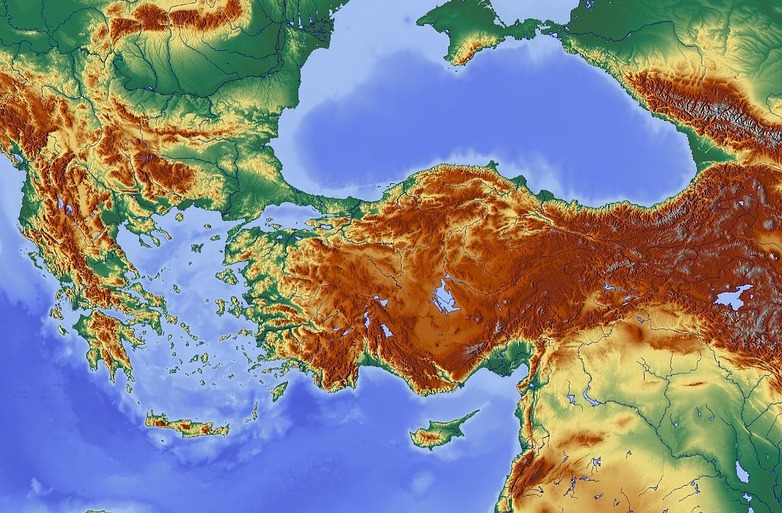Contemporary Greek politics is typically characterized by polarization, not only during pre-electoral periods, like the current one leading to the parliamentary elections of 21 May 2023, but also in-between elections. A war-like political climate reflects decades of ideological conflict, party-led politicization of the state administration and interest groups, and widening socioeconomic inequalities. Yet, Greece has also been sporadically swept by polarization on cultural issues, for instance, on perceived threats to national identity or on civil rights of homosexuals. Have such instances of polarization amounted to culture wars of the kind encountered in other Western societies?
In what follows, we discuss culture wars in Greece, based on field work which we did in 2022 in Athens, thanks to support provided by the LSE’s Hellenic Observatory. We studied available survey data, press clips and parliamentary minutes and conducted focus groups. We briefly discuss the concept of culture wars, place it in the context of post-authoritarian (post-1974) Greece, select out four cultural disputes in Greece, analyze them and conclude that tensions, rather than full-scale, wars have occurred in the Greek cultural sphere.
The culture wars idea is that beyond “objective” structural social divisions, such as social class, race/ethnicity, or gender, there are additional socio-cultural cleavages, out of which moral communities emerge. These cleavages relate to a variable mix of values cum attitudes at the symbolic level, including ethical/cultural codes and lifestyles. Culture wars are attempts to designate, determine, and shape the public life (Hunter 1991).
Culture wars are not just a thing of the past, when religion and tradition constituted the prevalent conceptual frameworks of society. They are continued in secular, economically and technologically advanced societies today. For instance, there are recurring disputes on the cultural impact of inflows of migrants and refugees and their integration into European societies. Such and other instances show that culture wars take place even though, compared to previous centuries, today people do not tend to adhere to warring moral communities. Western societies have become “atomized”, i.e., more individualistic. However, cultural wars may erupt when a segment of society feels that its cultural and particularly national identity is severely challenged.
Greek culture mixes traditional and religious beliefs and practices with very modern, 21st century, cultural patterns. The mix is the result of extensive post-1974 secularization and democratization which may have somewhat curbed the long-term influence of the Christian Orthodox Church. Meanwhile, democratization after the transition from authoritarian rule led to the spread of civil, political, and social rights.
In our research we explored four different contested issues. We were primarily interested to study the more traditional cultural views on the following issues: What were the challenges posed by anti-vaccinationists to government policy and the guidelines of the scientific community during the period of the Covid-19 pandemic? In the eyes of traditionalists, what were the challenges posed to the Greek national identity by the inflow and settlement of refugees and migrants in Greece? In the culturally conservative mind how are the traditional Greek family model and gender roles challenged by – still relatively uncommon in Greece – modern family models (single-parent families, same-sex marriages)? And in the view of traditional nationalists what were the challenges posed by the further integration of Greece into the European Union (EU) and by the Prespes Agreement of 2018, signed between Greece and North Macedonia, to resolve the 25-year long name dispute?
We have found out that, in contrast to other Western societies in which the protagonists of culture wars are social groups engaging in identity politics, in Greece participants in such conflicts have been not so much identity groups, but political and administrative institutions, including ministries, independent public authorities, the courts and official church authorities. Moreover, in post-1974 Greece’s party democracy, culture wars have been interwoven with on-going political party conflict. In fact, rarely have culture wars been waged outside the arena of political party competition, with political parties taking sides depending on their status as government vs. opposition and/or on their diverging political ideologies. Traditional identities still exist, but tight moral communities have not been formed.
These findings are not surprising, given the long-term and extensive intervention of the very centralized Greek state institutions in almost all social and economic spheres of the country and the two-party, conflictual, type of the Greek political party system. Cultural issues which are contested may have an autonomous, less politicized, “life of their own”, but are frequently subsumed to war-like conflict among political parties taking sides on the issues. Parties have used culture wars as arenas over which the usual conflict between government and opposition spills.
The mix of new cultural tensions with usual political party confrontation reflects a corresponding mixed finding in Greece’s civic culture today. Cross-national opinion surveys show that, compared to other Europeans, Greeks still retain a mix of materialist and post-materialist values, in which, in the wake of the economic crisis of the 2010s, materialist concerns are still preponderant. Surveys confirm that Greeks as a rule mistrust the “Other”, including anyone beyond a small circle of relatives and friends. They are xenophobic towards migrants and refugees and intolerant of modern, unconventional family forms and gender identities. Indeed, if there is a common thread linking the four culture wars referred to earlier, that may be that Greeks remain distrustful of authority and of other people.
Yet, the four focus groups, which we have conducted (one per contested issue), suggest otherwise. Focus group participants, on purpose selected as representatives of culturally conservative/traditional views, did not hold intransigent positions on contested issues. They would perhaps have been less mellow in expressing their views, if they had voiced opinions in public or in the presence of cultural challengers (e.g., representatives of the LGBTQI+ community). Focus group participants adopted a down-to-earth stance on most contested issues. For instance, they did not claim that Greek identity is challenged by migrants and refugees. After all, such incomers meet specific demands of the Greek labour market. Focus group participants were very pragmatic regarding Greece’s further integration into the EU and the reconciliation with North Macedonia. A sense of pride to be Greek today is not accompanied by a sense of threat to national identity by such foreign policy developments. Finally, our interlocutors understood unconventional family forms, such as cohabitation or single-parent families, in terms of human rights which in principle are safeguarded in a today’s democracies. However, focus group participants expressed strong reservations for same-sex marriage and the raising of children by homosexuals. Thus, there are limits to the inroads which secularization and democratization have made into traditional Greek culture.
To sum up our pilot study that others may also find intriguing, Greeks may be less traditional and more pragmatic than is usually thought. Further on, cultural conflicts in contemporary Greece have not grown into all-consuming culture wars. In Greece it is more accurate to speak of cultural tensions rather than typical culture wars.
References
Hunter, James Davison (1991), Culture Wars: The struggle to define America, New York, Basic Books.
*The Hellenic Observatory hosted a research seminar on the topic on 22 March 2023. For more information please visit the event page.
Note: This article gives the views of the author, not the position of Greece@LSE, the Hellenic Observatory or the London School of Economics.






